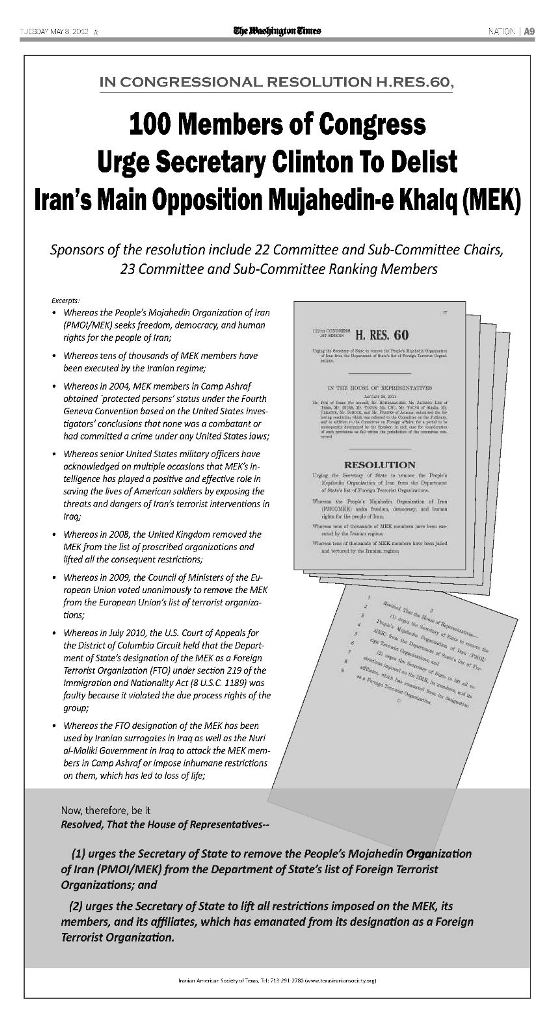THE WASHINGTON TIMES
Sponsors of the Resolution include 22 Committee and Sub-Committee Chairs, 23 Committee and Sub-Committee Ranking Members
(Click on the this link or the image below for the PDF version)

100 Members of Congress Urge Secretary Clinton to Delist Iran’s Main Opposition Mujahedin-e Khalq (MEK)